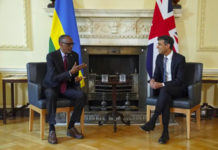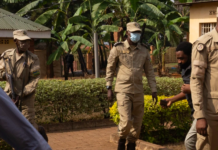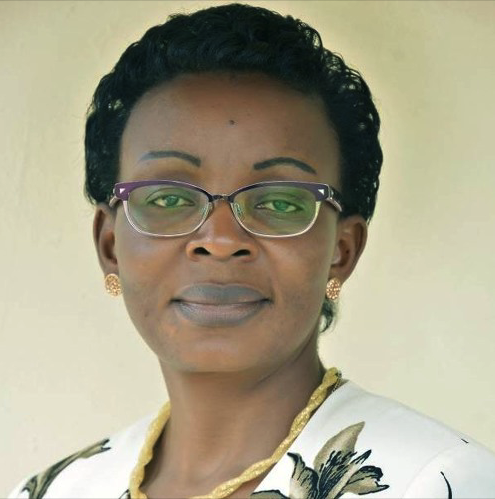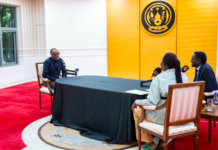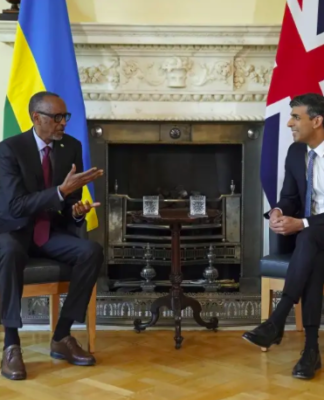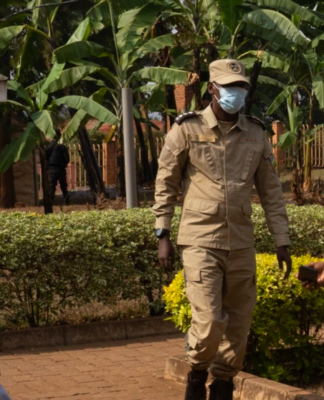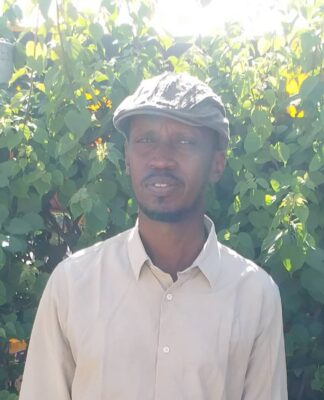By
In the recent race to become Britain’s next Conservative Party leader and prime minister, there was one item the final candidates all agreed on – sticking with a controversial plan to send asylum seekers arriving on their shores halfway across the world to Rwanda.
Just a few weeks into the top job, freshly anointed prime minister Liz Truss doesn’t appear to be changing course anytime soon. (The closest the plan came to happening was in June, when a plane of asylum seekers set for Rwanda was grounded following a last-minute injunction by the European Court of Human Rights).
Now, as the British government faces legal challenges to the scheme from campaign groups representing asylum seekers, renewed focus has turned to Rwanda’s human rights record – including its imprisonment of political opponents.
Having already fled much hardship, asylum seekers face the prospect of being sent to a country where the perpetration of injustice and violation of prisoners’ rights has effectively contributed towards frightening people from expressing their views.
As a formerly jailed Rwandan opposition leader, it’s a grim picture I’ve experienced first-hand.
An infamous prison
Prison conditions in Rwanda today remain harsh and harrowing – especially for those incarcerated for daring or perceived by the authorities to challenge the government’s narrative.
Today Rwanda’s prisons are overcrowded at 174% of capacity – with the second highest incarceration population rate (that is, the number of prisoners per 100,000 of the national population) outside America, according to the Institute for Crime & Justice Policy Research.
The institute listed Rwanda’s total prison population at just over 76,000 – out of a national population of a little over 13 million. Rwanda’s prisoners include thousands detained in connection with the 1994 genocide, the report added.
My journey to the heart of Rwanda’s prison system – and out the other side – holds an important lesson for countries like the UK considering sending asylum seekers to the country.
In January 2010, I returned to Rwanda from exile in the Netherlands, intending to register my political party and run in the upcoming presidential election. But a few months after my arrival I was arrested and taken to the police station, where I was handcuffed and locked in an empty room, devoid even of a mattress.
For two days I was kept in handcuffs, making it impossible to sleep. These were only removed so I could eat or use the toilet. My health deteriorated rapidly and a police doctor was summoned. Upon his insistence, I was provided with a mattress and, thankfully, could finally get some sleep.
While awaiting trial, I was confined to solitary confinement in a dark, hot cell in the infamous Nyarugenge Prison in downtown Kigali – commonly known as “1930 Prison.”
This facility is one of the oldest buildings in Kigali, and among the oldest prisons in the country, built some 92 years ago – hence the nickname, “1930.” These days it is no longer operational and there are plans to turn the land over to the Catholic Church for a cathedral, according to Agence de Press Africaine.
During the infrequent times when electricity was available in solitary confinement, the darkness was alleviated by an electric bulb which made the cell even hotter. Using a candle, I made a small hole in a high-placed, barely reachable window to let in a small amount of fresh air.
Fighting for freedom
Eventually I was dragged into politically motivated judicial proceedings and convicted of charges including denying the genocide against the Tutsi that was committed in 1994 in Rwanda.
I was sentenced by the Supreme Court to 15 years imprisonment in 2012. Following my sentence, I was kept in the very same cell, where I lived for five years, even though solitary confinement was not part of my sentence.
Not only was my back damaged from long hours spent poring over my case documents on the floor of my bare cell, but my iron levels also dropped severely from lack of exposure to sunlight. I developed spots on my skin from wearing clothes dried in a dark, humid room. Despite these hardships, I managed to file a claim against the Rwandan government to the African Court on Human and Peoples’ Rights (AfCHPR) in 2014.
In the meantime, after a doctor noted my condition, my outdoor time allotment was increased from one to three hours per week. Each Friday, supporters came from all over the country to visit me, which meant I could spend even more time outside.
But prison management swiftly responded by limiting my visits to only five guests for a 10-minute interval. This was later changed to one guest for 10 minutes.
Nevertheless, their visits, as well as the occasional sympathetic wave from fellow prisoners, kept my spirits up and sustained me during the five years I spent in solitary confinement. I will never forget the cheers and applause from the other inmates as I walked out of that dark, humid cell and was transferred to a general women’s prison where I spent three more years.
It was an improvement – but still shocking conditions. The general women’s prison was overcrowded and unsanitary. Prisoners’ food consisted of a cup of porridge in the morning and corn mixed with beans late in the afternoon. Children kept in prison with their mothers until the age of three were given the same. Some women didn’t have access to sanitary products during their menstruation.
These horrendous conditions were endured by impoverished women who had committed crimes of desperation. I remember meeting a single mother who was serving a three-year sentence for selling illegal alcohol (Kanyanga) after she lost her livelihood as a fruit vendor, following a crackdown in the streets of Kigali in 2016.
Beyond prison walls
In 2017, I won the appeal I made to AfCHPR in 2014. The AfCHPR concluded that the Rwandan government had violated my rights to freedom of expression and adequate defense. The court ordered the government to reimburse me and my family for the material and morel prejudice I suffered during my prosecution and imprisonment. The government is yet to do so and has not publicly commented.
However, later in 2018, I received a presidential pardon and was released from prison after a total of eight long years. I was released under the condition that I do not leave the country without approval from the Ministry of Justice. I have made such request several times so that I can visit my family in the Netherlands whom I have not seen for over a decade – especially my husband who is severely sick – but the ministry has never responded to me.
Since my release, the government has made some improvements in some prisons. However, food shortages, poor sanitation and overcrowding persist. Jailed government detractors are physically and emotionally tortured.
Indeed eight of my supporters are in prison today, due to a book they acquired and an online training session they attended to learn politics of nonviolence. They have never denied their actions and are still provisionally detained for almost a year, without any court judgment.
While Rwanda’s intention to help the UK address its immigration challenges is laudable, the British government must first support Rwanda to live up to Commonwealth values – including respect of human rights and making its political process inclusive and transparent. These would render the country ready and capable of economically and socially integrating refugees from less fortunate countries in the future.
For now, legal proceedings in the UK rumble on, and the spotlight on Rwanda’s human rights record – including treatment of dissenting voices – remains.
The only way for Rwanda’s allies, like the UK and US, to truly understand the plight of Rwanda’s political prisoners is to visit these institutions themselves – I call on them to do so.

